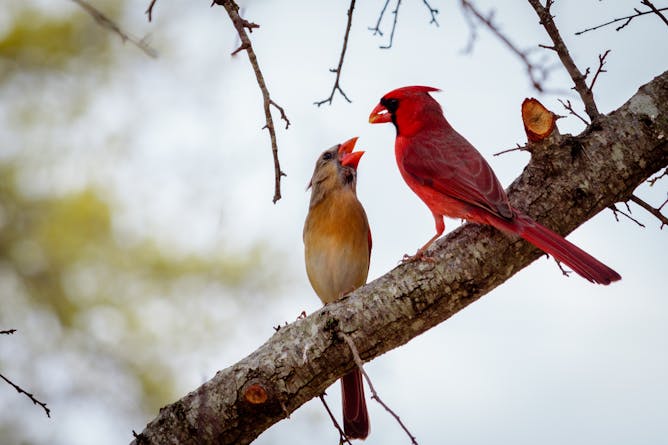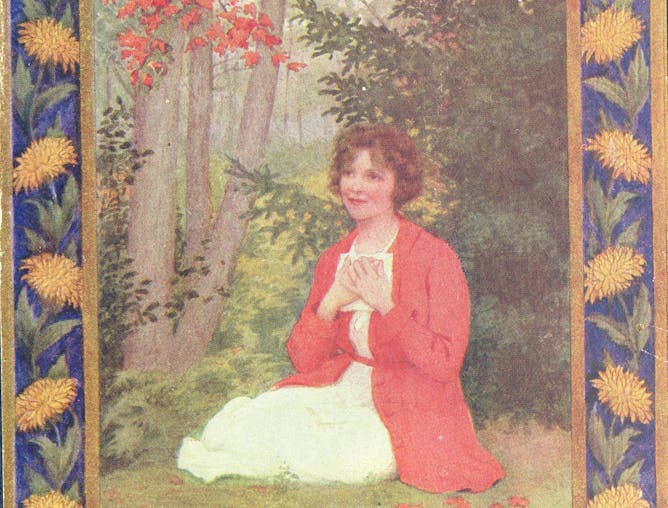|
|
|
Appreciating the hard work of wild animals
|
|
Recently in Toronto, after what felt like an endless winter, we had our first warm spring day. We saw signs of flowers and heard the active chirps of birds foraging for seeds. What may have been invisible to us is the amount of hard work birds and other wildlife perform in order to survive. Today in The Conversation Canada, Kendra Coulter, associate professor in labour studies at Brock University, explains how their labour benefits humans, and why we should be more appreciative of their “small” but crucial tasks. Should we feel empathy for raccoons, as Coulter asks? “If a raccoon leaves a messy mural of orange peels and tea bags on your driveway, you could pause and recognize that she or he is,
like you, working to survive and care for loved ones, and perhaps feel some empathy alongside the irritation.”
When racism affects us emotionally and physically, healing is a political act, says Prof. Roberta K. Timothy of York University. She explains today that although “racism is often not discussed in mainstream health circles,” it has serious health impacts. Prof. Timothy offers eight ways to strategically empower and care for oneself when dealing with everyday racism.
In more self-care news you can use, Neha Shivhare and Thomas Culham of Simon Fraser University describe a study that shows how just 10 minutes of daily classroom meditation can improve student attention, focus, happiness and self-awareness.
And finally, Lucy Maud Montgomery is a beloved writer who’s shaped Canadian memories not only with Anne of Green Gables, but also, with the eighth of her series of Anne novels, Rilla of Ingleside. That novel provides glimpses of the First World War, and Prof. Catherine Carstairs of the University of Guelph and her team of co-authors and curators explain how Montgomery became “one of the architects of our memories” of the conflict. Carstairs and her team have launched an exhibit featuring the original Rilla manuscript, as well as Montgomery’s journals and scrapbooks. “From Glen Notes to War Notes: A Canadian Perspective on the First World War in Rilla of Ingleside” is currently on view at
the University of Guelph.
Regards,
|
Vinita Srivastava
Culture & Society, Critical Race, Arts
|

|
|
Today's Featured Articles
|

The male cardinal tenderly feeding his mate is just one example of the hard work wild animals undertake in springtime. That work often benefits humans.
(Shutterstock)
Kendra Coulter, Brock University
Wild animals are hard at work this spring. Here's how their hard labour benefits humans, and why we should be more appreciative.
|

Healing is a political act says Global Health Prof. Roberta K. Timothy. In this article, she offers eight ways to deal with and heal from racism.
Henri Meilhac/Unsplash
Roberta K. Timothy, York University, Canada
Racism affects us emotionally and physically. Prof. Roberta K. Timothy offers eight ways to strategically empower and care for oneself when dealing with everyday racism.
|

Research shows that just 10 minutes of meditation per day can increase business students’ physical, mental and emotional awareness.
(Shutterstock)
Thomas Culham, Simon Fraser University; Neha Shivhare, Simon Fraser University
Classroom meditation shows promise for improving student attention, focus, happiness and self-awareness.
|

The 1921 book cover of ‘Rilla of Ingleside.’
University of Guelph
Catherine Carstairs, University of Guelph; Kathryn Harvey, University of Guelph; Keshia Krucker; Kesia Kvill, University of Guelph; Melissa Ann McAfee, University of Guelph
Lucy Maud Montgomery has shaped Canadian memories not only with 'Anne of Green Gables,' but also with the eighth of her series, 'Rilla of Ingleside,' which provides glimpses of the First World War.
|
Environment + Energy
|
-
Jeremy Firestone, University of Delaware; Ben Hoen, Lawrence Berkeley National Laboratory; Joseph Rand, Lawrence Berkeley National Laboratory
While wind energy is often perceived as controversial, that may be due to the tyranny and power of unrepresentative anecdotes.
|
|
Business + Economy
|
-
Bettina Büchel, IMD Business School; Dario Floreano, EPFL- École Polytechnique Fédérale de Lausanne - Swiss Federal Institute of Technology in Lausanne
Elon Musk 's Tesla has serious production problems.
|
|
Science + Technology
|
-
Corinna Frey, Cambridge Judge Business School; Marian Gatzweiler, University of Edinburgh
From eye-scanners to 3D printers, technology in humanitarian crises can be a positive force for disenfranchised people.
|
|
| |
| |
| |
| |
| |
| |
|
|
|
|
|
|
|